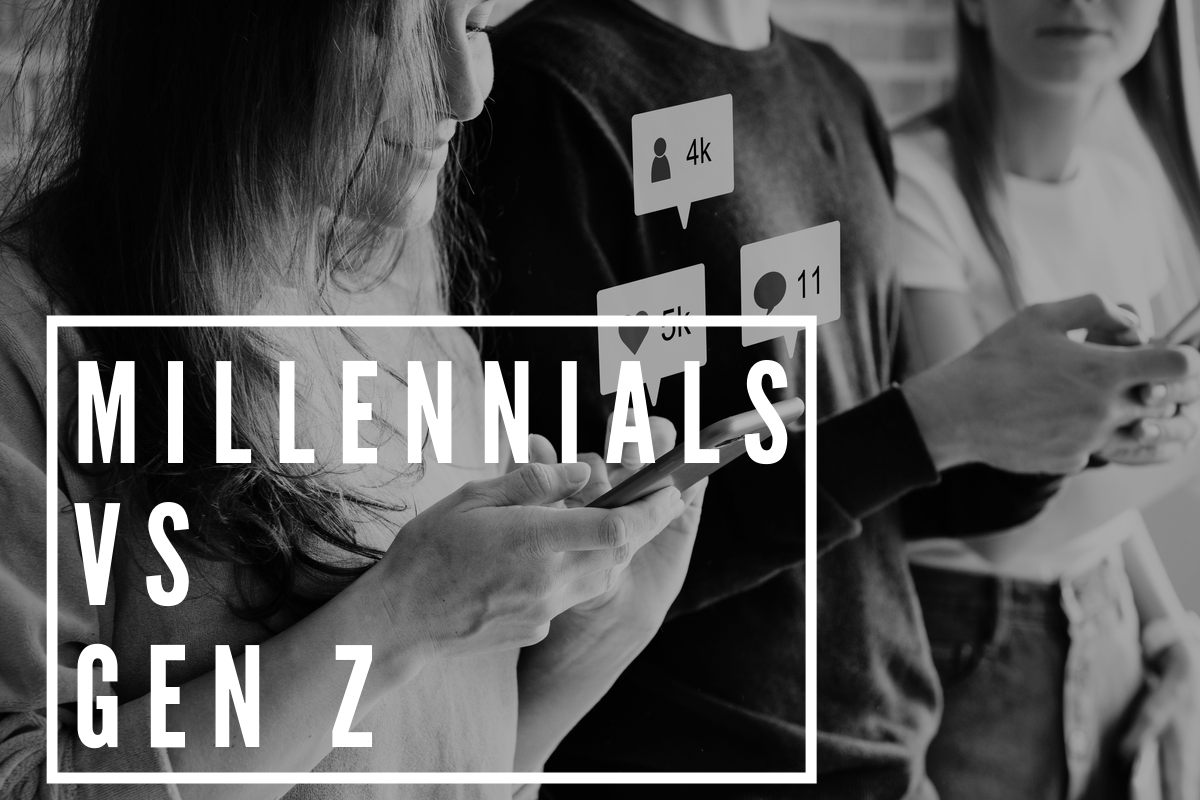
11 Oct Meet Gen Z: Your Organization’s Biggest Cybersecurity Threat

As Gen Z youths are starting to infiltrate the job market, so are some of the biggest security threats your business will experience. You heard us correctly, younger generations, are the biggest security threat to your business. Especially Gen Z employees, who despite being the most technologically savvy generation are also dubbed the most ignorant.
Who are the Gen Z’s?

Generation Z typically refers to the kids born between 1995-2010. They’re the generation right after the Millennials. This is the generation raised on smartphones and tablets, social media and the internet. Coincidentally, this is the reason why Gen Z individuals are true digital natives.
Difference between a Gen Z and a Millennial employee

The one major difference between a Gen Z and a Millennial employee is this; millennials witnessed the rise of technology and played a major role in developing it. Whilst Gen Z individuals had widespread access to technology from their early years.
Gen Z’s comfort with both the internet and the digital world could be one of the reasons why they’re overconfident with digital safety. Think about it, the more comfortable you are in an environment, the less guarded you’ll be.
Some terrible cybersecurity habits from Gen Z include:
-
- 78% of Gen Z employees tend to reuse the same passwords across different online and social media accounts. Interestingly, only about 60% of Baby Boomer employees admit to password resume.
-
- Only 44% of Gen Z employees understood what the term phishing means. However, 71% of Gen Z’s are confident that they will not fall for a phishing scam.
-
- Gen Z prioritizes personalization over privacy. Compared to their Millennial counterparts, Gen Z individuals are more willing to share personal data with strangers online, for a more predictive experience. In short, Gen Z does not value personal online security as stringently as Millennial employees.
-
- Poor social media hygiene. Thanks to this generation’s obsession with personalization, social media apps have devised methods to help personalize the consumer experience. Which means that Gen Z’s are more inclined to geotag images shared online. In the wrong hands, the metadata can be used by cybercriminals to track where you live – and wreak havoc on the devices both at home and your workplace.
See: Internet of Things
- Poor social media hygiene. Thanks to this generation’s obsession with personalization, social media apps have devised methods to help personalize the consumer experience. Which means that Gen Z’s are more inclined to geotag images shared online. In the wrong hands, the metadata can be used by cybercriminals to track where you live – and wreak havoc on the devices both at home and your workplace.
-
- Gen Z’s desire to be connected. As part of the internet and mobile born generation, these individuals expect to be connected to the internet anytime they like. As such, there is a higher chance for Gen Z’s to connect to unsecured public wifi networks. In the wrong hands, cybercriminals can use this to eavesdrop, steal personal information, as well as infect devices with malware.
-
- Inclusive generation. Perhaps too inclusive. To digital natives, there is no difference between the friends they meet online and the friends they made in the physical world. If they’re in it for the long run, attackers might be able to befriend a Gen Z employee online, to gain access to incriminating company details.
How to Prevent Cybersecurity Threats when Managing Gen Z Employees

Now that we understand how the youth operates. How do we help them prevent cybersecurity threats? Some ways you can do so include:
- Education: One way to solve Gen Z’s ignorance towards cybersecurity is by educating them. Whether you choose to teach your newbie employees about the threats of connecting to unsecured wifi. Or the dangers of spilling confidential workplace information to strangers on the internet.
Learn more about why cybersecurity should matter to HR personnel, too.
- Encourage 2FA: As a self-described Gen Z employee, I didn’t know about the importance of two-factor authentication. I mean, who would want access to all the unfinished drafts and client requests in my Google Drive right?
But 2FA is simply a second layer of security that makes it harder for an attacker to access your data. In fact, 2FA should be implemented no matter how strong your password is. Here are some worrying facts about traditional security:
A. 90% of passwords can be cracked in under 6 hours
B. Two-thirds of internet users use the same passwords everywhere
C. Smart cyber attackers have the power to test billions of passwordsLearn more about how to better protect your password here.
- Introduce Unique Best Practices: As an HR representative, it is up to you to create and introduce the best cybersecurity practices that best fit your employees.
For instance, focus on the idea of “Digital Trust” when dealing with Gen Z employees. This is a generation that is more conscious of their actions over the internet. 72% of Gen Z worry that their online actions, such as their social media posts and online purchases will affect their job purchases.
Creative problems require creative solutions. Gen Z is a group that is obsessed with personalization. Maybe, you should give them personalized solutions as well.
Learn more about the best cybersecurity practices every HR employee should know here.
What are some unique ways of managing Gen Z employees and their lack of cybersecurity skills? Share them with us in the comments section below!
Need some help?
Outsource your cybersecurity headache to trained tech recruiters with A Very Normal Company. At A Very Normal Company, we offer the best manpower available to act as your first line of defense. Find out more about A Very Normal Company here. Or contact Victor at ([email protected])for more information on how outsourcing and recruiting temporary cybersecurity talents is a great option to consider when it comes to protecting your company, its resources, and reputation online.
Stay informed, follow A Very Normal Company on Linkedin for more news and updates on Cyber Security outsourcing and recruitment in Singapore.

